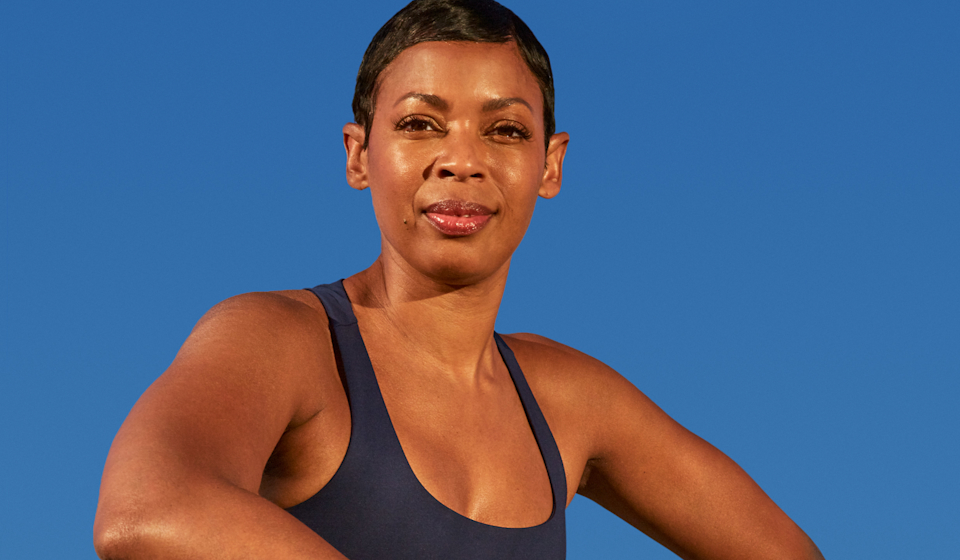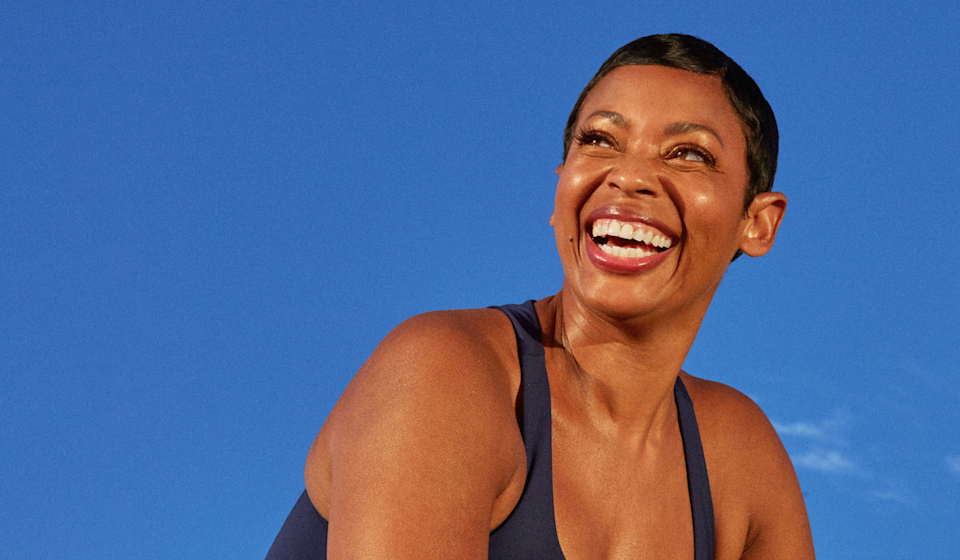During this time, estrogen and progesterone levels start to dip, and your period tends to become less frequent. When you’ve gone an entire year without getting a period, that’s menopause—and you enter the postmenopausal phase of your life.
There are obviously a lot of physical changes to consider with this transition—in addition to fluctuating hormone levels, your nutrient needs shift, too. But that’s not even to mention some of the emotional and mental aspects of this change, which are totally understandable when your body is going through such changes.
A New Outlook
The first step to any major transition, says Silvestri, is making room for all the individual feelings that come up with it. “A woman’s experience of menopause is absolutely shaped by her personal mental set, constellation of life experiences, and culturally salient ideas about women and aging, as well as her individual bio-physio blueprint,” she says. In short: It’s different for everyone, so there’s not exactly a one-size-fits-all approach. (1)
But one tactic that might feel helpful is thinking back to your teenage experience—sure, there may have been a lot of angst and uncertainty involved. But chances are you also felt energized by all the promise of the years ahead: The prospect of the future and figuring out your place in the world felt as exciting as it did vaguely terrifying. What if we thought of the years after menopause in a similar way—with the added bonus of life experience and a stronger sense of self to help fuel that positive outlook?
It’s a theme we’ve seen among some of the coolest women we’ve talked to about negotiating this life stage. They all have different paths that have led them to where they are. Some of them have reached the peak of their careers, or realized that they felt more empowered to launch their own business. We spoke to Dian Griesel, for example, whose modeling career took off at age 55. Susan Feldman launched popular decor platform One Kings Lane at 53, sold it several years later, and, now in her 60s, is growing a media platform around the topic of aging. (Feldman, for what it’s worth, directly credits her age and experience for her success.)
Then there’s Angelique Miles, who embodies middlescence in a particularly poignant way: After being aged out of her position as a successful music industry executive in her 40s, she began working out as a way to cope with the transition. Suddenly, she realized her hobby had turned into a passion, and she quickly leveraged it into a career opportunity: Now, Miles has reinvented herself as a fitness expert and is happier than ever, all because she asked herself what she really wanted to do every day.
The bottom line? “It is critical to realize that the choices you made in your twenties and thirties have shaped, but do not define you,” says Silvestri. Think of it this way: Decades of life and understanding have prepared you for this moment. And that’s more than we can say for our teenage selves.












